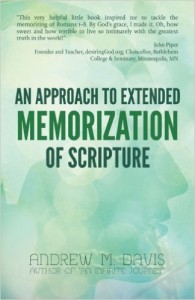Mark 10:17-22 presents a fascinating situation. A man asks Jesus, “What must I do to inherit eternal life?” In light of other New Testament passages, you might expect Jesus to say what he said to Nicodemus in John 3:16, (whoever believes in the Son of God will not perish but have eternal life), or what Paul told the Philippian jailer in Acts 16:31 (believe on the Lord Jesus Christ, and you will be saved). You would expect Jesus to say something consistent with what Paul wrote in Ephesians 2:8-10 (salvation is received by grace through faith).
Instead, Jesus answers the man by saying:
“You know the commandments: ‘Do not murder, do not commit adultery, do not steal, do not give false testimony, do not defraud, honor your father and mother’”.
Jesus recites five of the Ten Commandments (Exodus 20:1-17), along with the command “do not defraud.” So he tells the man that the way to heaven is found in the observance of Commandments 5-10, which all deal with how we treat other people.
The parallel passage in Matthew 19:16-22 sheds even more light on this conversation, for there we read that Jesus’ first response to the man’s question was a more general statement: “If you want to enter life, obey the commandments”. The man then asked, “Which ones?” Jesus lists the same five commandments that Mark records and then Jesus gives the summary commandment, “love your neighbor as yourself.”
The man says, “Teacher, all these I have kept since I was a boy” (Mark 10:20). And then he asks, “What do I still lack?” (Matthew 19:20).
Now comes the climax of the conversation:
“Jesus looked at him and loved him. ‘One thing you lack’, he said. ‘Go, sell everything you have and give to the poor, and you will have treasure in heaven. Then, come, follow me.’ At this the man’s face fell. He went away sad, because he had great wealth” (Mark 10:21-22).
The key to this exchange is the man’s self confident statement in Mark 10:20 – “all these (commandments) I have kept since I was a boy.” This man was claiming to have done everything necessary to earn salvation. He came to Jesus with an attitude of self-righteousness and spiritual superiority, which was common among the Jewish religious elite. The Pharisees, scribes and the teachers of the law – these men truly believed they could earn God’s favor by obeying a long list of rules and regulations that included not only the Ten Commandments and the rest of the law of Moses, but an even longer list of man-made do’s and dont’s that eventually superceded the law of God.
Prior to his conversion to Christianity, the Apostle Paul was a good example of such self-righteousness. He wrote this about himself – “in regard to the law, a Pharisee; as for zeal, persecuting the church; as for legalistic righteousness, faultless” (Philippians 3:4-6).
Paul said he was “faultless.” Many Jews felt that way, and the young man in Mark 10 was cut from the same cloth. In effect, he was claiming the same perfection as Paul, and had the same attitude of arrogant self-sufficiency. When Jesus told him that the way to heaven was through obedience to the Ten Commandments, the young man said, “Oh, I knew that already. I’ve been obeying those commands all my life. Been there, done that. Tell me something I don’t know.”
This man was claiming that he was “good enough” to enter heaven because of his own achievement. Rather than admit he was imperfect and a sinner in need of God’s forgiveness, he was boasting about his good works and what a great guy he was.
Remember what Ephesians 2:8-9 says? Salvation is “not by works, so that no one can boast”. This man, like so many of his day, was trying to earn eternal life through his own self-effort, and was bragging to Jesus about it.
Because He was God, Jesus knew what was in this man’s heart. He knew that the man’s external observance of the law was his attempt to merit God’s favor. But just to be sure, the man comes to Jesus to confirm he hasn’t missed anything. And so Jesus confronts the man with the innermost desires of his heart. The man was good at religion, and could put on a good show of legalistic compliance with the letter of the law, but his heart was not truly devoted to God. He was in love with himself and his own abilities, and lacked the kind of saving faith that depends of the grace of God.
In response to the man’s arrogant reply, “All these (commandments) I have kept since I was a boy”, Jesus gets right to the heart of the matter: “One thing you lack. Go, sell everything you have and give to the poor, and you will have treasure in heaven. Then come, follow me.” Notice the young man’s reaction: “At this the man’s face fell. He went away sad, because he had great wealth” (Mark 10:21).
Wow! What an incredible turn in the conversation! Jesus confronts the man with his true first love, and reveals that this man’s obedience to the law was not the result of salvation, but rather his attempt to earn it. His first love was his wealth, and Jesus tells him that his religion did not consist of true love for God, because this man was not willing to give up his wealth. God was not really Number One in his life. He loved material possessions more than God.
The young man was sincere in his attempt to earn God’s favor. He even showed Jesus tremendous respect by both his actions and his words – note that he “ran up to him and fell on his knees” and called Jesus a “good teacher” (Mark 10:17). He was eager to get Jesus’ perspective on this matter.
But when he told Jesus “all these I have kept since I was a boy”, he was saying, in effect, “I’m on the right track. I’m doing everything I’m supposed to do to merit eternal life.” He would not admit he was a sinner in need of God’s grace and mercy. Instead, he was saying, “I’m in. I’m OK. I’m perfect.”
Obviously he wasn’t perfect. And his reaction to Jesus’ challenge demonstrated his imperfection. He loved his possessions more than his neighbor. In fact, he loved his wealth more than God. And most importantly, he was unwilling to accept the true test of discipleship – following Christ. He failed to submit to the Lordship of Christ – this is the crux of the matter.
A common response to this passage is to ask, “Is Jesus saying that I must sell all my possessions in order to follow Him?”
Obviously not. This passage is consistent with the rest of Scriptural teaching that salvation is by grace through faith. Salvation cannot be earned by good works, as we see in Ephesians 2:8-10. Good works are the result but never the cause of our salvation. So Jesus cannot be teaching salvation by philanthropy.
Jesus is teaching that true salvation results in giving Christ first place in your life. This man was unwilling to do that, and so went away sad because he was unable to make the commitment that true faith requires.
I believe that Jesus is teaching the same truths as Ephesians 2:8-10. He is teaching that salvation is received:
By grace: Jesus demonstrated this man’s need for God’s grace by pointing out his sinfulness. The rich young ruler would not admit his imperfection, so Jesus had to point it out. He gave him a command that he was unwilling and unable to perform, thereby showing how sinful and selfish he really was.
Through faith: when Jesus said, “Follow me”, he was saying, “Believe in me. Put your life in my hands. Commit yourself totally to me. Trust me for eternal life instead of yourself.”
Not by works: in light of verse 19, this is perhaps the subtlest teaching of the passage, because at first glance it appears that Jesus is saying that obedience to God’s law (“good works”) is the way to obtain eternal life. Well, there is a sense in which that is exactly what Jesus is saying – if you could keep God’s law perfectly, if you never sinned, then you would be able to earn God’s favor. But the impossible standard of keeping God’s law is designed to show us our true condition of imperfection, not give us reason to boast about ourselves. True faith says, “No matter how hard I try, I can’t earn eternal life.”
Finally, this passage is teaching that salvation results in good works. If the rich young ruler had saving faith in Jesus, he would have gladly obeyed Christ’s command to sell his possessions, give the money to the poor, and follow his Lord no matter what the cost.
Many Christians wonder, “Does this passage teach that I must live a life of poverty to please God?” The answer is: Yes – if wealth is your true God; if material possessions are standing between you and God; if you worship money more than Jesus.
Jesus wants us to follow Him no matter what the cost. He requires that we rid ourselves of anything and everything that hinders our devotion to Him. So if you have the same attitude toward wealth as the rich young ruler of Mark 10, then, yes, you should get rid of your possessions — if that’s what it takes to make Jesus the Number One priority in your life.
We are to have no other gods. In 21st century America, isn’t it accurate to say that many people worship the idols of money, wealth and material possessions? Greed and materialism are rampant in our society, are they not?
And it is therefore no coincidence that many American churches reflect the materialistic behavior of modern society. Could it be that many professing U.S. Christians are living a “double life” – a life in which a person claims to be a follower of Christ, but in reality, this person is actually a follower of the gods of materialism and greed.
Do you find this indictment too harsh? I pray not. And if you do find my comments too gloomy, I wonder if your mind’s eye has become blind to its true condition with regard to financial gain. So I challenge you to examine your own lifestyle and priorities – your spending habits, your attitude toward the acquisition, consumption, and possession of financial assets and material things.
Jesus was quite clear on this point: “No one can serve two masters. Either he will hate the one and love the other, or he will be devoted to the one and despise the other. You cannot serve both God and money.” (Matthew 6:24)
Take these words of our Lord to heart and ask yourself: Am I really serving God, or am I serving money and/or possessions?
 In response to the invitation of blogger Tim Challies of www.challies.com, I’m reading the book “Knowing God” by J.I. Packer. First published in 1973, this has become an evangelical classic and I’m excited to dive into it with hundreds of other believers.
In response to the invitation of blogger Tim Challies of www.challies.com, I’m reading the book “Knowing God” by J.I. Packer. First published in 1973, this has become an evangelical classic and I’m excited to dive into it with hundreds of other believers.







